SERIES REVIEW – The makers of Darkness return with another elegantly twisty – though somewhat familiar and slow-building in many places – new supernatural series in 1899.
A couple of years ago, German creative/romantic partners Jantje Friese and Baran bo Odar made their mark with Netflix’s sci-fi/thriller series Darkness. It centers on “a missing child [who] sets four families on a frantic manhunt for answers as they uncover a mind-bending mystery that spans three generations” and has been praised by critics and audiences alike. So the roughly two-and-a-half-year wait to see what the duo would do next was challenging, to say the least.
Cruise to America at the turn of the millennium
This brings us to their second series, succinctly yet mysteriously titled 1899. This time, “multinational immigrants traveling from the old continent to the new continent encounter a nightmarish mystery aboard a second ship adrift on the high seas.” Along the way, various truths and connections are revealed about the main characters’ backstories and motivations, resulting in an almost non-stop flow of compelling and mysterious narrative threads, haunting musical accompaniment, and beautiful visuals.
It must be admitted, however, that the plot builds up very slowly in 1899: through the first six episodes (which is 80% of the eight-part series), events feel somewhat repetitive in places, dragged out, and lacking in originality. While we will not discuss the specific details here (for obvious reasons), suffice it to say that particular plot points and interactions could have occurred earlier, been more concise and meaningful, and/or repeated less frequently.
Nonetheless, 1899 is a skilfully crafted journey that stands up to The Darkness and further reinforces Friese and Odar’s role as one of the strongest creative pairs in modern television.
Tearing through the water
1899’s greatest strength is its stunningly picturesque visuals – if you have the means, make sure you watch the series on a big 4K TV. From the swirling overhead flashes of key ships cruising ominously deserted seas to the breathtakingly realized depictions of people in period dress standing in front of vivid backdrops (upper decks, banquet halls, etc.), almost every scene has a meticulously elegant and grand scale.
The series is also a bloody master of contrasts between light and dark elements. In a later episode, for example, menacing flashes of lightning illuminate otherwise unlit locations. In a great shot, the silhouette of one of the main characters (Tove, played by Clara Rosager) is lit by someone else’s flashlight as she sits alone in a pitch-black corridor. These contrasts and Friese and Odar’s perfect use of shadows give the series a consistently eerie atmosphere.
The highly authentic set and costume design also deserve special mention. It is clear that meticulous efforts have been made to make the passenger cabins, among other things, appear realistically grey and inhabited. Likewise, most protagonists and antagonists come from different locations (France, England, Denmark, Asia, Spain, and Portugal, to name a few), and their clothing, hairstyles, and accessories reflect this.
Music and actors
Of course, the sounds of 1899 are as defining and laudable as the sights. As well as wittily employing a number of popular songs (such as Jefferson Airplane’s “White Rabbit,” which was the theme song to the recent Matrix film, and The Jimi Hendrix Experience’s “All Along the Watchtower”), the period-appropriate musical interludes are brilliantly subtle, ominous or emotional at just the right moments. The score, written by Australian composer Ben Frost (Raised by Wolves, Super Dark Times), blends classical, industrial, and electronic soundscapes to embody the central sounds of the respective scenes with surprising accuracy and impact.
Although not all the characters are equally compelling (more on that later), the acting is excellent across the board, with Rosager, Lucas Lynggaard Tønnesen (as Krester), Isabella Wei (as Ling Yi), and Aneurin Barnard (as Daniel) in particular giving outstanding performances. They all bring plenty of nuance and pathos to their performances, so you are constantly worried about them.
In addition, the structure of the performance is very attractive and clever. For example, each chapter begins similarly but with a different person; this is not only an innovative use of conceptual continuity, but it also allows the series to engage the audience on an emotional and intellectual level with what these people are going through or have gone through individually and collectively (both present and past).
In this regard, the various flashbacks, clues, symbols, and other recurring plot elements interspersed throughout the journey serve to maximize viewer involvement. Of course, it’s nothing new to illustrate, say, the first half of a memory, move away from it for a while and then wrap it up two or three episodes later. Still, this always worked well in 1899.
Seasickness
Unfortunately, a few minor negatives prevent 1899 from being a masterpiece (at least in its first season). First, the basic storyline – a scattered community is randomly brought together or shared by spooky objects/visions/events and unfortunate fates – has become pretty standard storytelling by now. These clichés are undeniably “enhanced” by the strengths mentioned above, but only enough to overcome the basic sense that we’ve seen a lot of this before.
In fact, 1899 is explicitly reminiscent of many other (excellent) classic films and video games of the past, including Mike Flanagan’s The Haunting of Hill House, Lars von Trier’s The Kingdom, Stanley Kubrick’s The Shining, Phantasm, Stephen King’s The Stand, and, in the video game realm, titles like Resident Evil 7: Biohazard and The Evil Within 2. (Even the opening scene is reminiscent of the visual world of The Evil Within 2, as is the character of the male lead, his appearance and the tragedies that have occurred him in the past, and even the main plot thread.) True, some parallels are inevitable with such stories and characters, but they are nonetheless obvious.
The somewhat sluggish pace exacerbates these overly familiar motifs. This is not to say that the series is ever particularly dull (it isn’t), but at least a handful of scenes and interactions are not serious enough to justify its length. Moreover, more narrative surprises would have been more effective if we had encountered them sooner.
Heroes familiar from video games
As alluded to above, some people are more interesting than others. It’s a bit disappointing that the two main characters – Captain Eryk Larsen (who, as mentioned, bears a striking resemblance to Sebastian Castellano from The Evil Within 2) and the slightly “Alone in the Dark” Dr. Maura Franklin – aren’t original enough to really get excited about. This has more to do with the writing of their characters than their acting (Andreas Pietschmann and Emily Beecham certainly give it their all), but it definitely holds the series back a bit.
In addition, there is a bit too much repetition and exposition, especially at the beginning. Only in the first episode (“The Ship”) is it mentioned several times that the lost ship (the Prometheus) “disappeared four months ago.” Throughout the rest of the episodes, we are also told how mysterious the ship is, which is absolutely true, but less effective if it is constantly being mouthed.
Aside from these minor negatives, 1899 is a top-notch series that clearly rivals its predecessor and justifies Friese and Odar’s place as two of Netflix’s flagship showrunners. While the twists and turns are a little different (the impact of The Evil Within 2 is pretty rough), the plot is often touching, spooky, clever, and exciting, and it is high quality and engaging in all technical aspects, such as direction/operatography, music, acting, dialogue, and set design.
-BadSector-
1899
Direction - 8.2
Actors - 8.4
Story - 7.6
Visuals/Music/Sounds - 9.4
Ambience - 8.4
8.4
EXCELLENT
1899 is a top-notch series that clearly rivals its predecessor and justifies Friese and Odar's place as two of Netflix's flagship showrunners. While the twists and turns sometimes echo from elsewhere (the impact of The Evil Within 2 is pretty rough), the plot is often touching, haunting, clever, and exciting, and it is highly polished and engaging in all technical aspects, such as direction/operatography, music, acting, dialogue, and set design.

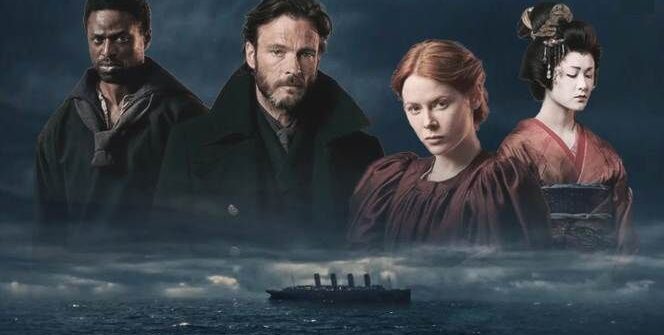
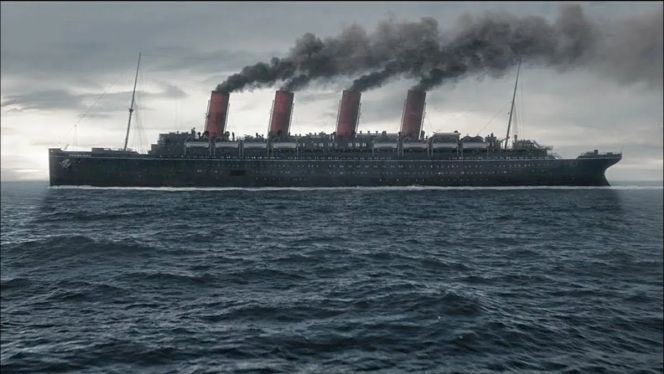
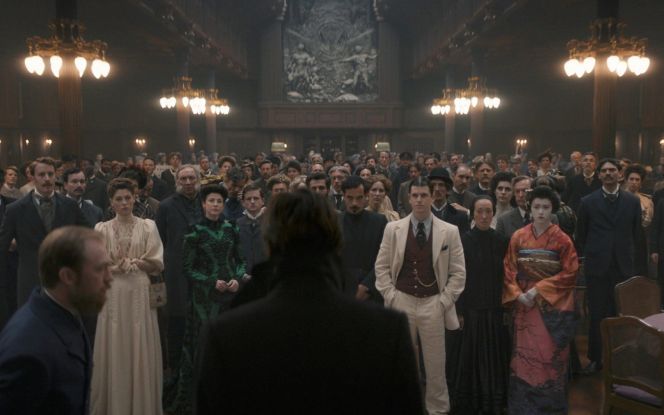

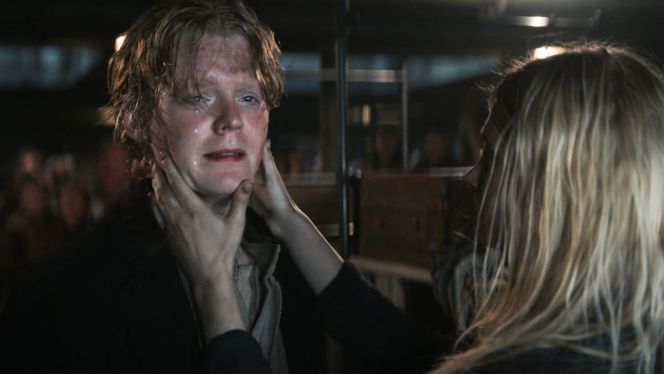

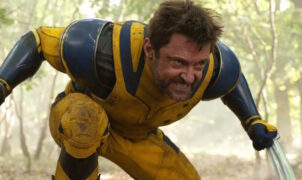
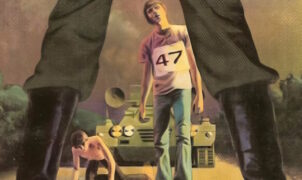







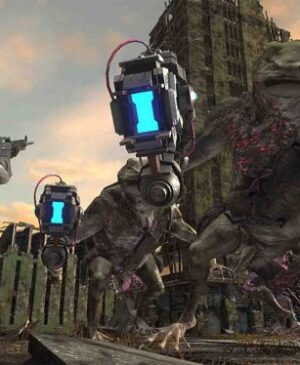


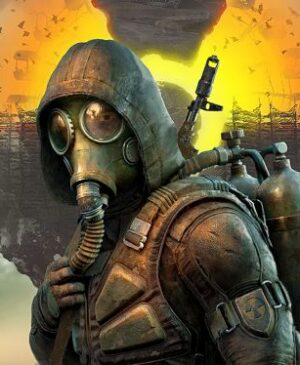
Leave a Reply